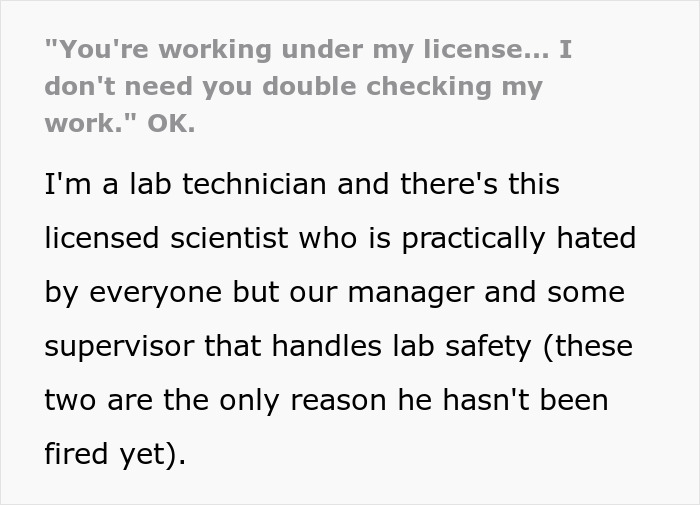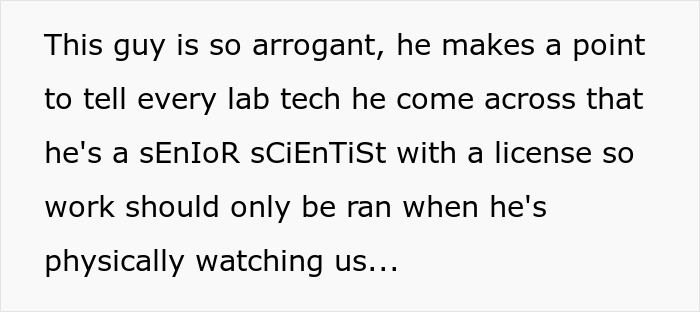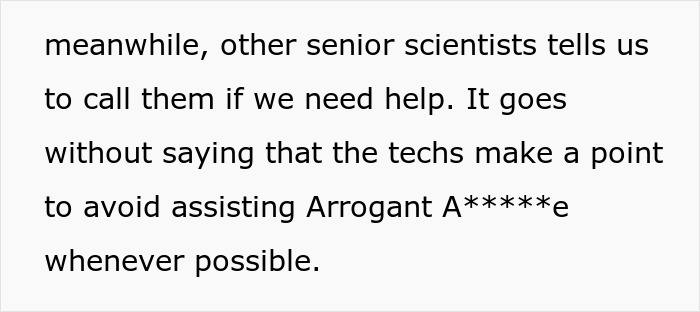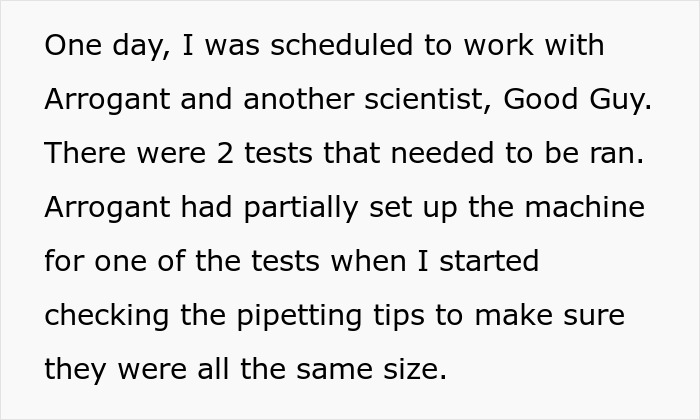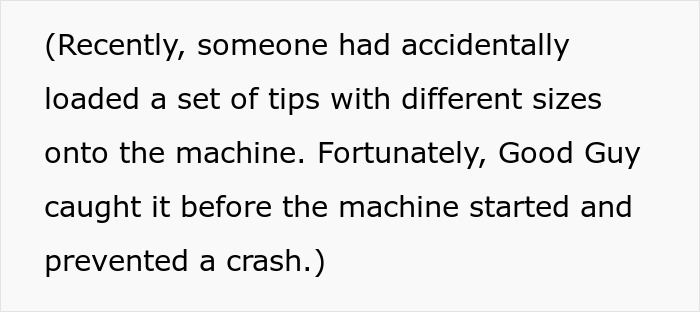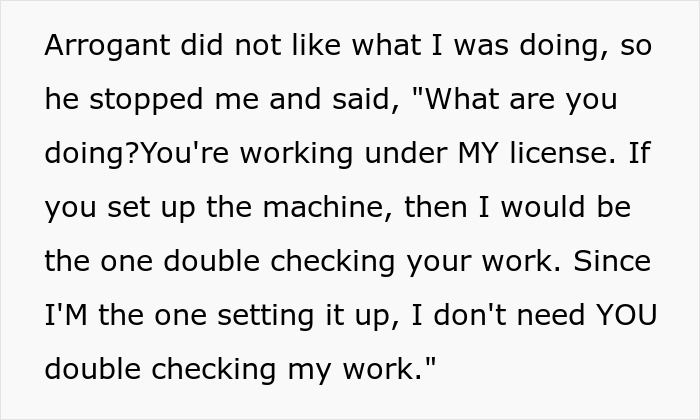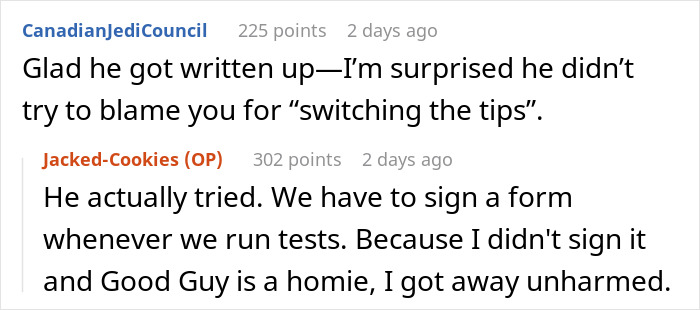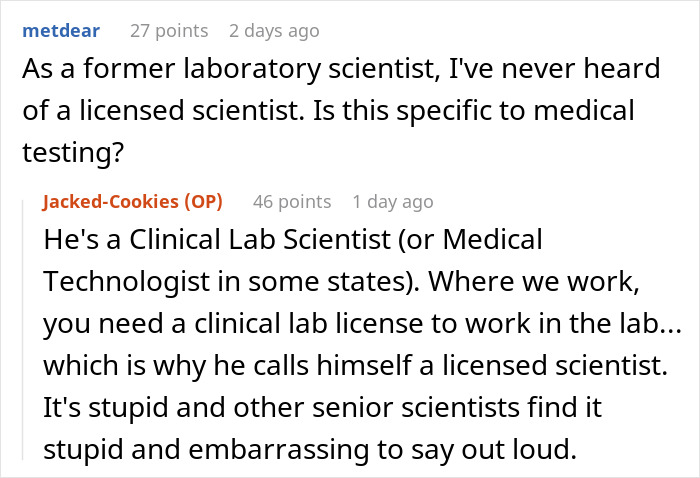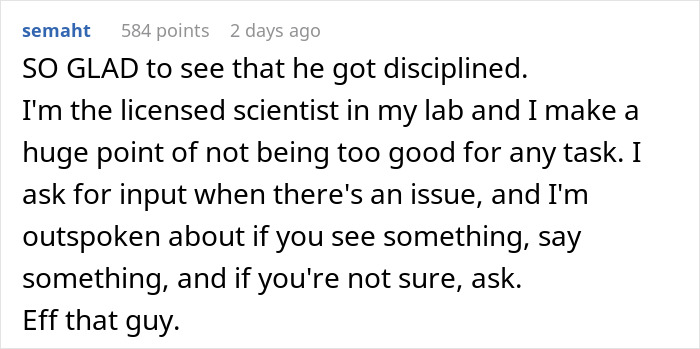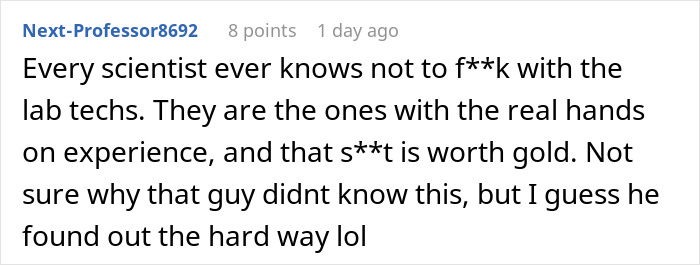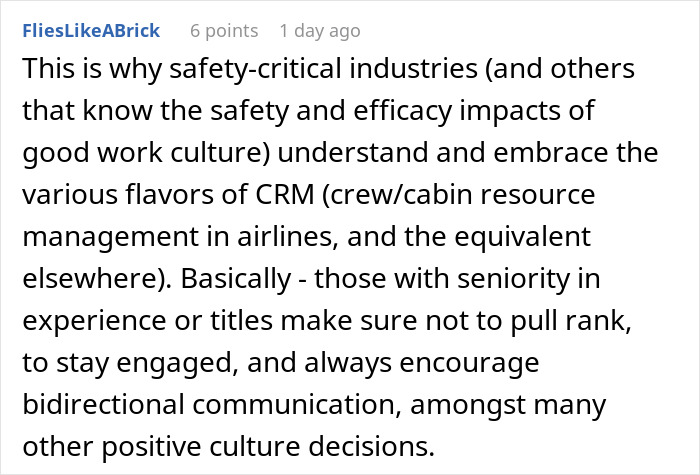Created by a lab technician who goes by the nickname Jacked-Cookies, the story details a frustrating encounter with an arrogant senior scientist whose dismissive attitude led to a costly mistake. While the organization fosters a collaborative environment, this one scientist insists on micromanaging every task and doing things his way only. Luckily, in the end, he did receive a lesson in humility. Hopefully, he gets the message.
There are type A personalities, and then there are entitled jerks
Share icon Image credits: ThisIsEngineering / pexels (not the actual photo)
This petty revenge story is about the latter
Share icon Image credits: Polina Tankilevitch / pexels (not the actual photo)
Share icon Image credits: Tima Miroshnichenko / pexels (not the actual photo)
Image credits: Jacked-Cookies
Micromanagers aren’t doing their organizations any favors
Julia DiGangi, who is a neuropsychologist and the founder of NeuroHealth Partners, says we are naturally programmed to detest micromanagers. “The human brain is wired for independence,” she writes. “When management experts talk about things like employee choice, schedule flexibility, and bringing your authentic self to work, they are describing the brain’s drive for autonomy.” “Regions in the brain, such as the ventrolateral prefrontal cortex and the insula, give rise to people’s innate sense of self—the drive we all feel to have our own preferences, make our own choices, and express our own desires.” So why do leaders like this scientist fight human nature? “At root, the tendency to rely on command energy stems from a leader’s own anxiety and lack of confidence,” DiGangi explains. “And as anyone who has worked for a micromanager can attest, this style of leadership tends to increase the anxiety of subordinates, too. That’s especially troubling now, when rising percentages of the workforce say they already suffer from anxiety.” Indeed, 2024 data from ComPsych analysis—based on a representative sample of more than 300,000 U.S. cases—found that anxiety is now the number one presenting issue among American workers, topping depression, stress, partner/relationship issues, family issues, addiction, and grief, among other topics people sought help for. Micromanaging creates transactional relationship in which the manager fixates on minor mistakes and focuses on a person’s weaknesses. Great coaching, on the other hand, highlights support and trust that emerge out of a rhythm of collaborative conversations, leading to teamwork and shared accountability. Hopefully, the scientist can become a coach. For his and everyone else’s sake. Share icon Image credits: Airam Dato-on / pexels (not the actual photo)
The lab technician behind the story shared more information on what happened in the comments
People were happy to hear the scientist got what he deserved
Anyone can write on Bored Panda. Start writing! Follow Bored Panda on Google News! Follow us on Flipboard.com/@boredpanda!

